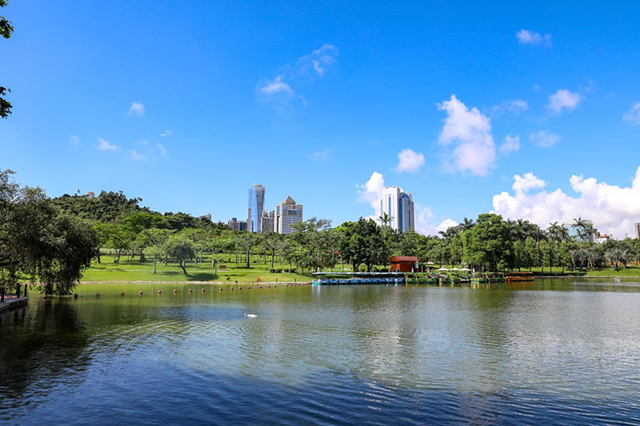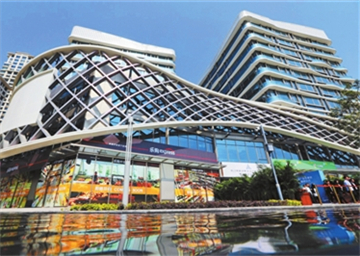Targeted measures result in exceptional city air quality
Air quality in Zhuhai increased by six places from January to September, compared to last year, to rank 3rd among 168 key cities nationwide, according to the Ministry of Ecology & Environment.
The compliance rate of the air quality index was 96.7 percent for the first three quarters, a year-on-year increase of 6.2 percentage points. Only Hainan Province's Haikou City and Lhasa of Tibet Autonomous Region scored higher. The concentration of six pollutants (nitrogen dioxide, sulfur dioxide, carbon monoxide, 8-hour ozone concentrations, PM2.5, and PM 10) was up to standards and improved by more than 10 percent.
The average concentration of PM2.5, PM 10, and ozone dropped 28.6 percent, 23.5 percent, and 14.7 percent respectively year-on-year to 15, 26, and 116 mcg per cubic meter. Of note, the PM 2.5 concentration was the lowest among those of 21 Guangdong cities.

Haibin Park in Jida, Xiangzhou District [Photo by Wu Changfu / Guanhai App]
The city government has taken precisely targeted air-pollution control measures. For instance, hundred-day action plans were implemented in summer and autumn-winter to clarify timetables, roadmaps, and tasks.
Furthermore, an air quality examination network covering all towns and sub-districts across the city was established for real-time information collection from 28 automatic monitoring stations that focus on data and spatial distribution of the six pollutants and generate monthly rankings.
Zhuhai has conducted cutting-edge fundamental research on two precursors key to ozone formation -- volatile organic compounds (VOCs) and nitrogen oxide. Pollution caused by VOCs and diesel trucks was cracked down on through investigation of industrial sources and projects related to transmission channels and meteorological influence.
Meanwhile, field inspections were made of enterprises that have high air and ozone pollution potential. These were carried out under a well-functioning mechanism with immediate problem rectification and feedback.
In addition, Zhuhai has mapped out rectification measures on 667 sources of waste gas pollutants within a radius of 1 km (.62 miles), 3 km (1.86 miles), and 5 km (3.1 miles) of citywide air monitoring sites of the China National Environmental Monitoring Center. Experts were invited for one-to-one consultations to clamp down on pollution in key periods and by key enterprises.



